10 of the Best Things to Do in Greece: Ultimate Guide A Mediterranean Paradise
Greece, a Mediterranean paradise, offers a rich tapestry of history, culture, and natural beauty. From ancient ruins to stunning islands, this ultimate guide highlights the 10 of the best things to do in Greece. Whether you’re exploring the iconic Acropolis, sailing through the crystal-clear waters of the Aegean Sea, or indulging in delicious Greek cuisine, Greece promises unforgettable experiences for every traveler. Let’s dive into the best attractions and activities that make Greece a must-visit destination.
Geography and Location
Greece is located in southeastern Europe, bordered by Albania to the northwest, North Macedonia and Bulgaria to the north, and Turkey to the northeast. The country is surrounded by the Aegean Sea to the east, the Ionian Sea to the west, and the Mediterranean Sea to the south. Greece’s diverse geography includes mountainous mainland regions, picturesque islands, and a coastline that stretches for thousands of kilometers.
Weather and Best Time to Visit Greece
Greece enjoys a Mediterranean climate, characterized by hot, dry summers and mild, wet winters. The best time to visit Greece depends on your preferences and the activities you plan to enjoy.
- Spring (March to May): Mild temperatures and blooming flowers make spring an ideal time for hiking, exploring archaeological sites, and enjoying the countryside without the summer crowds.
- Summer (June to August): Warm and sunny, with temperatures ranging from 25°C to 35°C (77°F to 95°F). This is the peak tourist season, perfect for beach activities, island hopping, and enjoying the vibrant nightlife.
- Autumn (September to November): Cool and crisp, with fewer tourists and vibrant fall foliage. It’s a great time for cultural activities, wine festivals, and exploring the islands with less hustle and bustle.
- Winter (December to February): Mild winters along the coast and colder in the mountainous regions. Winter is ideal for skiing in places like Mount Parnassus and exploring the less crowded archaeological sites.
Things to Do in Greece
Athens: The Cradle of Western Civilization
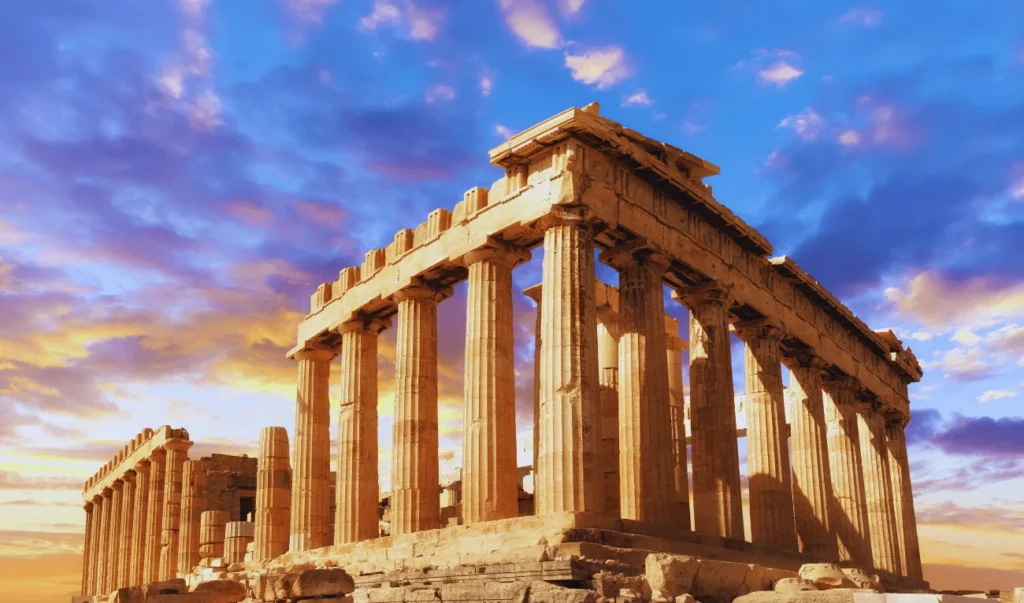
Start your Greek adventure in Athens, the country’s historic capital. Athens is a city where ancient history and modern life coexist seamlessly. Begin exploring the Acropolis, the ancient citadel perched on a rocky hilltop, home to the iconic Parthenon. This UNESCO World Heritage site offers breathtaking views over the city and a glimpse into Greece’s ancient past.
Just below the Acropolis, the Acropolis Museum houses a vast collection of artifacts from the Acropolis site, providing deeper insights into the lives of ancient Athenians. Wander through the charming neighborhoods of Plaka and Monastiraki, where narrow streets are lined with neoclassical buildings, vibrant markets, and cozy tavernas.
In the heart of Athens, Syntagma Square is a bustling hub where you can witness the changing of the guard at the Hellenic Parliament. Nearby, the National Archaeological Museum, one of the world’s most excellent museums, showcases a vast collection of Greek antiquities from prehistoric to late antiquity.
Santorini: The Iconic Island
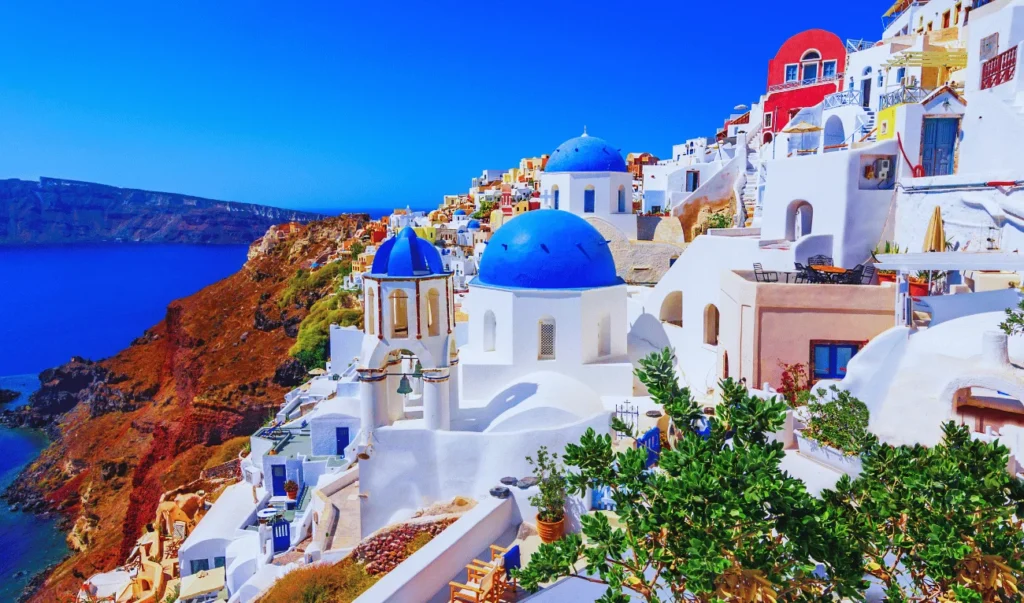
Next, head to Santorini, one of the world’s most iconic and picturesque islands. Santorini is a paradise for romantics and photographers alike, known for its stunning sunsets, white-washed buildings, and crystal-clear waters. The island’s main towns, Oia and Fira, are perched on the caldera’s edge, offering spectacular views of the volcanic crater filled with azure waters.
Take a stroll through the narrow, winding streets of Oia, famous for its blue-domed churches and charming shops. Fira, the island’s bustling capital, offers a lively atmosphere with numerous restaurants, bars, and shops. Don’t miss the opportunity to visit the Santorini Caldera, where you can hike along the rim or take a boat trip to the volcanic islands of Nea Kameni and Palea Kameni.
Santorini’s beaches are unique and varied, with the Red Beach and Perissa Beach being among the most popular. The Akrotiri Archaeological Site, often referred to as the “Minoan Pompeii,” provides a fascinating glimpse into the ancient civilization that once thrived on the island. Wine enthusiasts will enjoy touring the island’s wineries and tasting the distinct volcanic wines that Santorini is famous for.
Mykonos: The Party Island
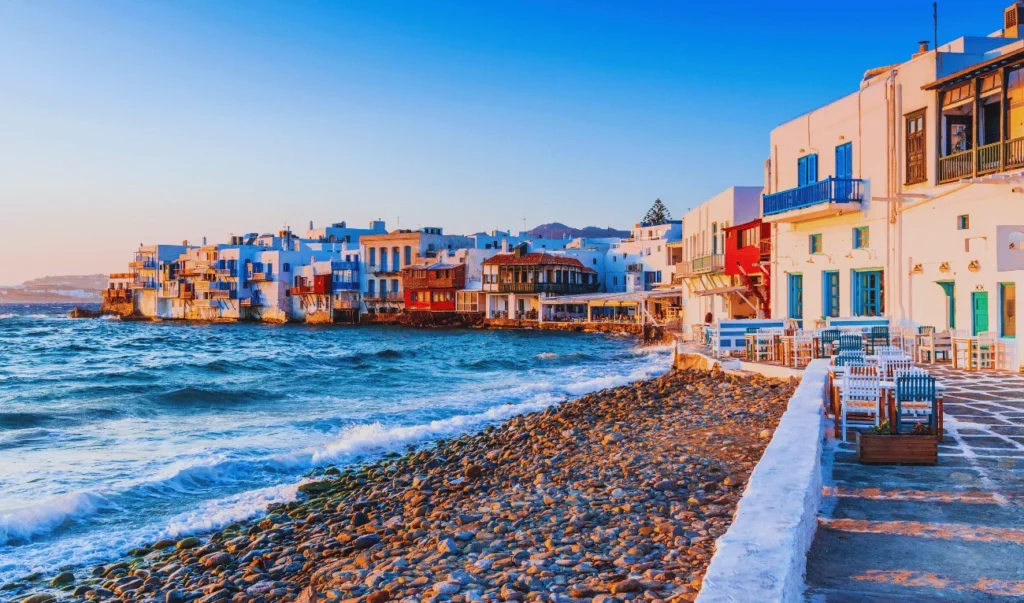
Mykonos, known as the party island, is famous for its vibrant nightlife, beautiful beaches, and cosmopolitan atmosphere. The island’s main town, Mykonos Town (Chora), is a maze of narrow streets lined with whitewashed buildings, trendy boutiques, and lively bars and clubs.
One of the most iconic spots in Mykonos is Little Venice, where colorful houses are built right on the water’s edge. The nearby windmills, a symbol of the island, offer a great photo opportunity and a glimpse into Mykonos’ past as a major wheat producer. During the day, relax on the island’s famous beaches, such as Paradise Beach and Super Paradise Beach, where the party continues from day to night.
A short boat trip from Mykonos takes you to the sacred island of Delos, one of the most important archaeological sites in Greece. Delos was the birthplace of Apollo and Artemis and is filled with ancient ruins, including temples, theaters, and mosaics. Mykonos’ nightlife is legendary, with world-renowned DJs performing at the island’s clubs and beach bars, making it a must-visit destination for party lovers.
Crete: The Largest Greek Island
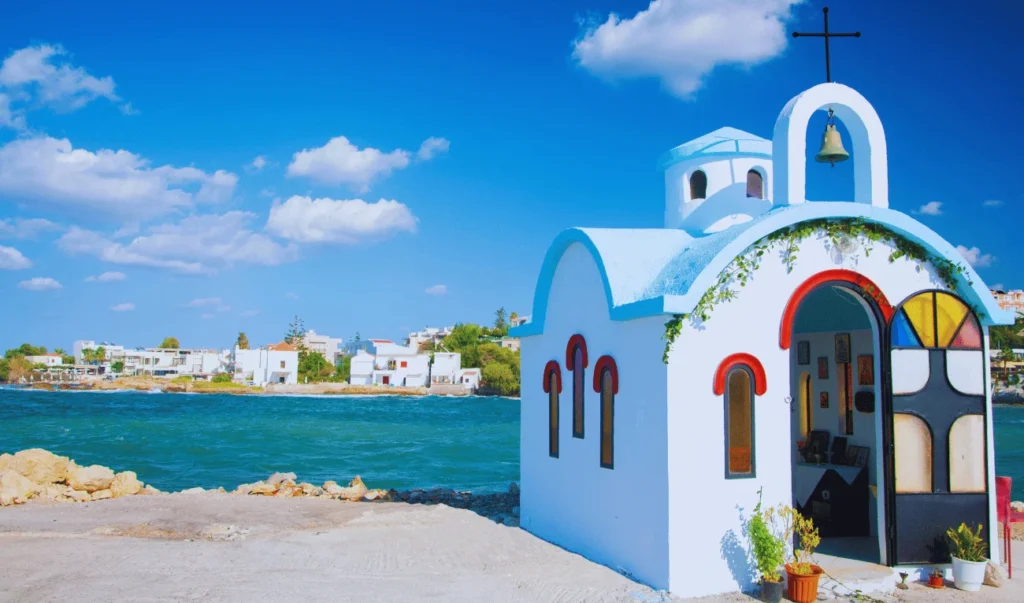
Crete, the largest of the Greek islands, offers a diverse landscape of mountains, beaches, and ancient ruins. The island’s rich history is evident in its archaeological sites, such as the Palace of Knossos, the center of the Minoan civilization. Located near the island’s capital, Heraklion, Knossos is a sprawling complex of ruins that provide insights into one of the oldest civilizations in Europe.
Heraklion itself is a vibrant city with a bustling market, the impressive Heraklion Archaeological Museum, and the historic Venetian Fortress. On the western side of the island, Chania Old Town is a charming area with narrow streets, colorful buildings, and a picturesque Venetian harbor. The Samaria Gorge, one of Europe’s longest gorges, offers a challenging yet rewarding hike through stunning natural scenery.
Crete’s beaches are among the best in Greece, with Elafonissi Beach and Balos Beach being particularly famous for their turquoise waters and pink sand. Whether you’re exploring the ancient ruins, hiking through the mountains, or relaxing on the beach, Crete offers a unique blend of cultural and natural attractions.
Rhodes: The Island of the Knights
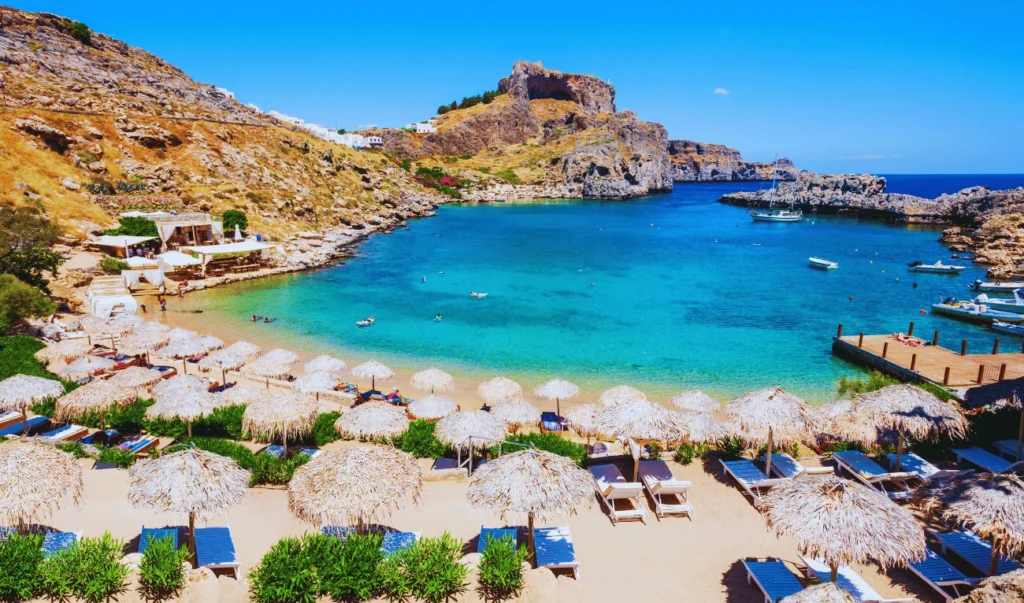
Rhodes, the largest of the Dodecanese islands, is known for its rich history and beautiful beaches. The island’s medieval Old Town, a UNESCO World Heritage site, is one of the best-preserved in Europe. Walking through its cobbled streets, you can explore the Palace of the Grand Master, the Street of the Knights, and numerous historic buildings that tell the story of the Knights of St. John.
The ancient city of Kamiros, the Acropolis of Lindos, and the Temple of Apollo are just a few of the archaeological sites that reflect Rhodes’ historical significance. The island’s beaches, such as Tsambika Beach and Anthony Quinn Bay, offer pristine waters and scenic views.
Nature lovers will enjoy the Valley of the Butterflies, a lush green valley where thousands of butterflies gather during the summer months. Rhodes combines historical exploration with natural beauty, making it a versatile destination for travelers.
Corfu: The Emerald Isle
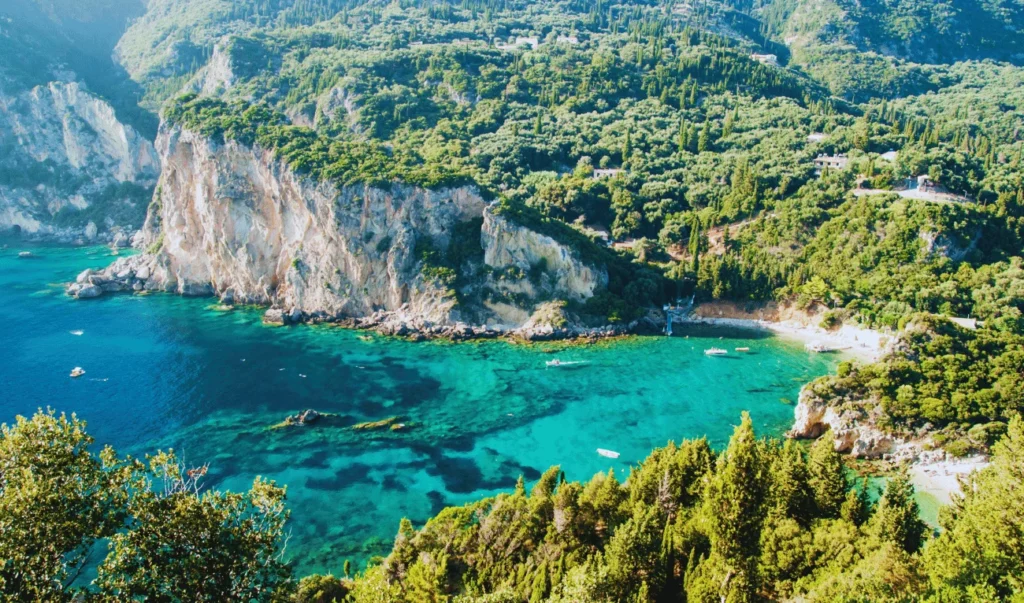
Corfu, known as the Emerald Isle due to its lush landscapes, is a jewel in the Ionian Sea. The island’s rich history is reflected in its architecture, influenced by Venetian, French, and British rule. Corfu Old Town, a UNESCO World Heritage site, features narrow alleys, charming squares, and historic buildings.
The Achilleion Palace, built by Empress Elisabeth of Austria, is a stunning neoclassical palace with beautiful gardens and impressive views. Paleokastritsa, on the western coast, is famous for its monastery and stunning bays with crystal-clear waters. Sidari and the Canal d’Amour offer unique rock formations and a picturesque setting for swimming and snorkeling.
Mount Pantokrator, the highest point on the island, offers breathtaking views of Corfu and the surrounding sea. Corfu’s blend of natural beauty, historical sites, and vibrant culture makes it a perfect destination for travelers seeking both relaxation and adventure.
Meteora: Monasteries in the Sky
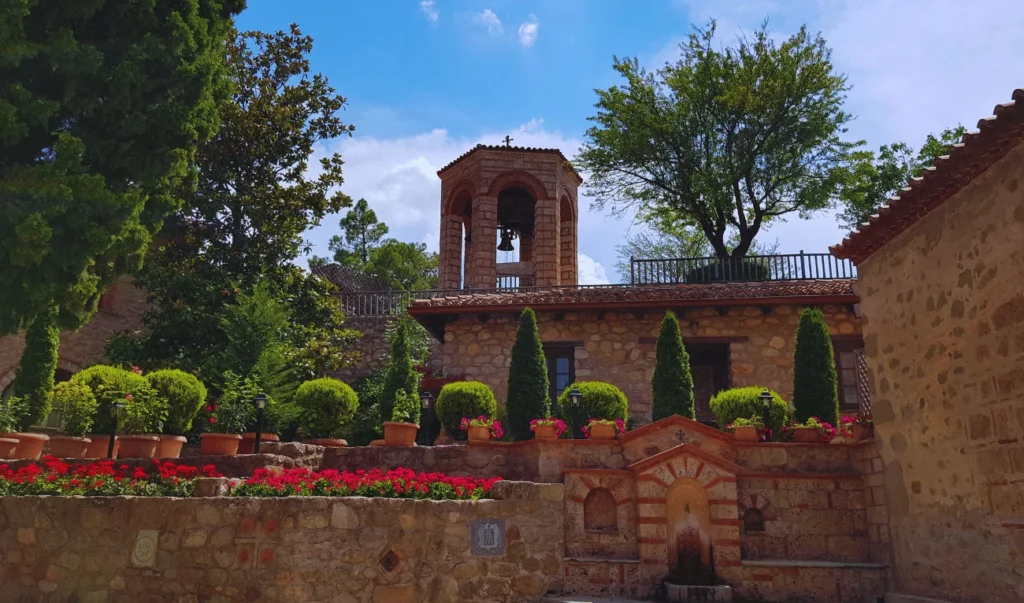
Meteora, located in central Greece, is one of the most spectacular and unique destinations in the country. The region is famous for its monasteries perched atop towering rock pillars, creating a surreal and awe-inspiring landscape. These monasteries, some of which date back to the 14th century, are a UNESCO World Heritage site and a testament to the monks’ ingenuity and devotion.
Visitors can explore the six active monasteries, each offering stunning views and a glimpse into the monastic life. Rock climbing and hiking are popular activities in Meteora, with trails and routes that provide different perspectives of the towering rock formations. The town of Kalambaka, situated at the base of the rocks, offers charming accommodations and traditional Greek tavernas.
A visit to Theopetra Cave, which contains archaeological remains dating back to prehistoric times, adds another layer of historical intrigue to the Meteora experience. Whether you’re exploring the monasteries or enjoying the natural beauty, Meteora is a destination that inspires wonder and reflection.
Delphi: The Navel of the World
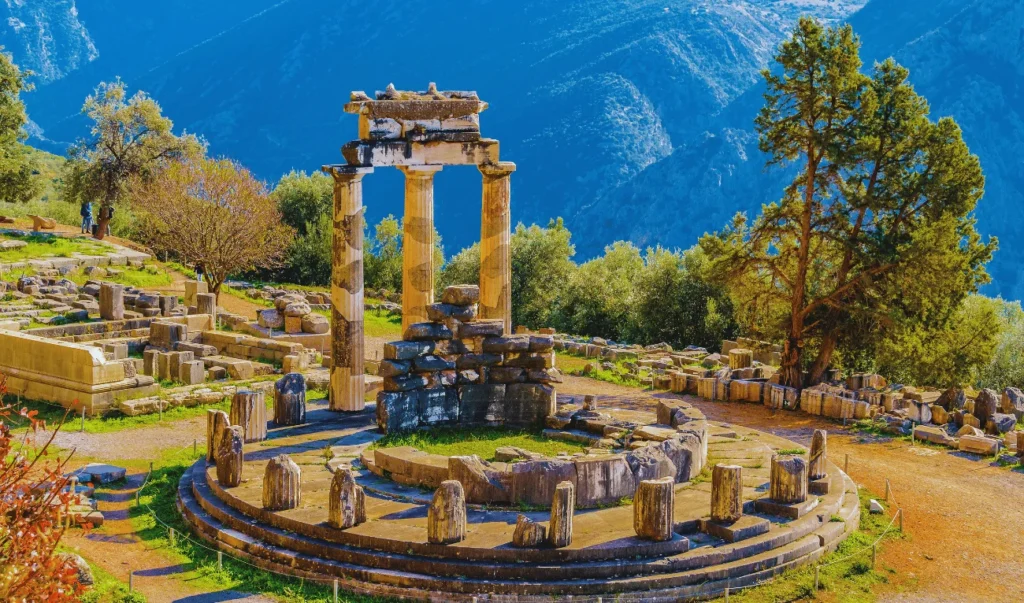
Delphi, known as the navel of the world in ancient times, is one of Greece’s most significant archaeological sites. Located on the slopes of Mount Parnassus, Delphi was the center of the world for the ancient Greeks and the location of the Oracle of Apollo, where pilgrims from all over the Greek world would come to seek guidance. The site is steeped in history and mythology, offering breathtaking views of the surrounding valley.
Start your visit at the Temple of Apollo, where the oracle would deliver her prophecies. The well-preserved ruins of the ancient theatre and stadium offer a glimpse into the cultural and athletic events that once took place here. The Delphi Archaeological Museum houses a vast collection of artifacts discovered at the site, including the famous Charioteer of Delphi statue.
Exploring the nearby Mount Parnassus, with its hiking trails and ski resorts, provides a wonderful complement to the historical experience. The charming village of Arachova, with its traditional architecture and vibrant atmosphere, is an excellent place to stay while visiting Delphi. Delphi’s combination of history, mythology, and natural beauty makes it a must-visit destination in Greece.
Thessaloniki: The Cultural Capital
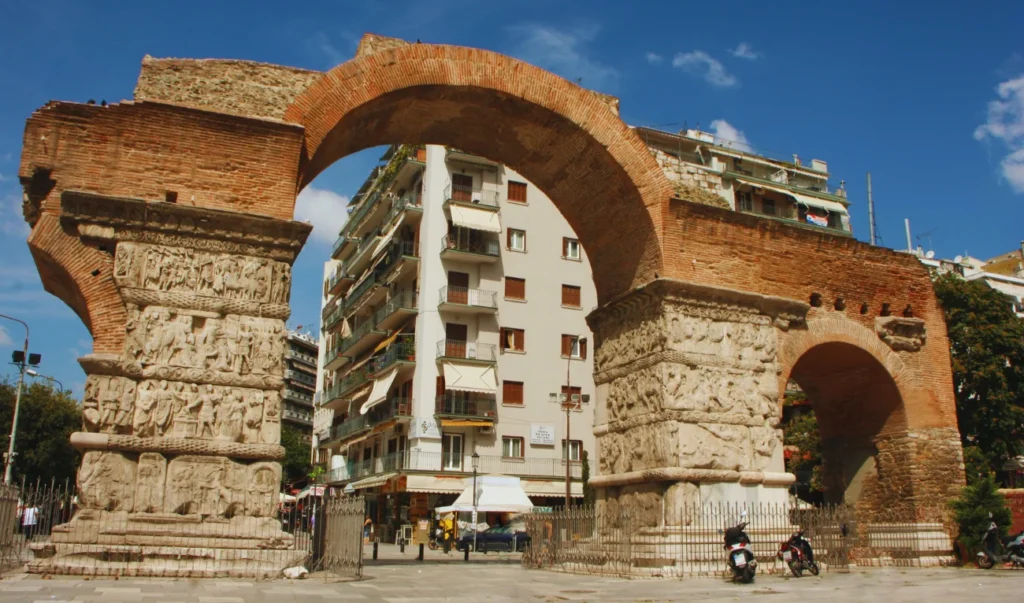
Thessaloniki, Greece’s second-largest city, is known for its rich history, vibrant cultural scene, and lively nightlife. The city’s waterfront, lined with cafes, bars, and restaurants, is the perfect place to start your exploration. The White Tower, a symbol of the city, offers panoramic views of the Thermaic Gulf and the city itself.
The Rotunda and the Arch of Galerius are impressive remnants of Thessaloniki’s Roman past. The city is also home to several important Byzantine churches, such as Hagios Demetrios and Hagia Sophia, both UNESCO World Heritage sites. Aristotelous Square, the city’s main square, is a bustling hub of activity, surrounded by neoclassical buildings and filled with shops and cafes.
The Thessaloniki Archaeological Museum and the Museum of Byzantine Culture provide fascinating insights into the city’s long history. Ano Poli, the Upper Town, is a charming area with traditional houses, narrow streets, and stunning views over the city. Thessaloniki’s vibrant atmosphere, historical depth, and cultural richness make it a captivating destination.
Zakynthos: The Flower of the East
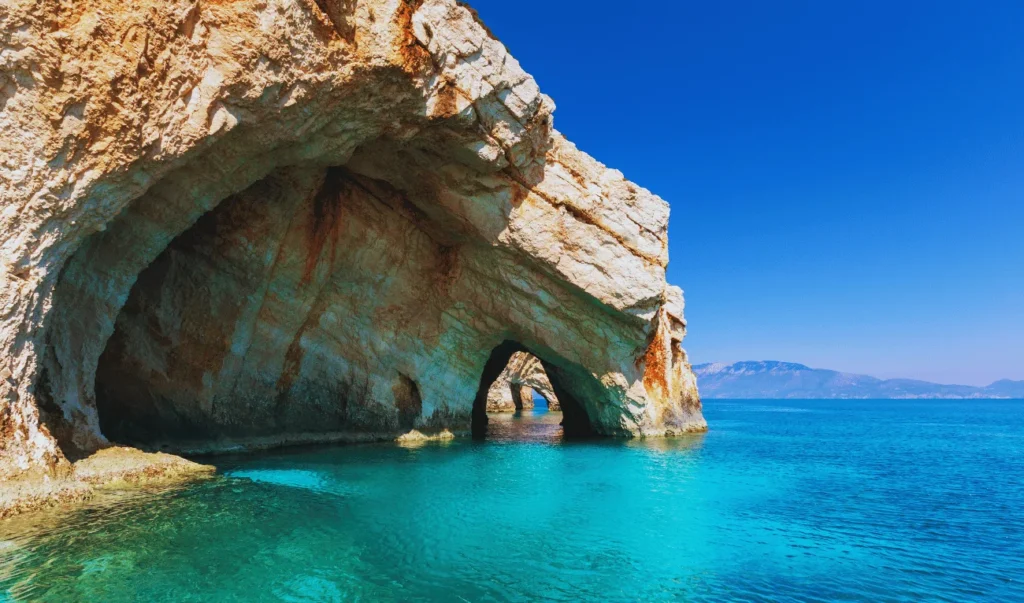
Zakynthos, also known as Zante, is famous for its stunning beaches, crystal-clear waters, and vibrant nightlife. The island’s most iconic spot is Navagio Beach, also known as Shipwreck Beach, where a rusted shipwreck lies on a pristine white-sand beach surrounded by towering cliffs. Accessible only by boat, Navagio Beach is one of the most photographed sites in Greece.
The Blue Caves, located on the northern tip of the island, are another must-see. These sea caves are famous for the vibrant blue color of the water inside them, which makes for an unforgettable swimming or boat trip experience. Zakynthos Town, the island’s capital, offers a mix of Venetian and Byzantine architecture, with numerous shops, cafes, and restaurants.
Visit Marathonisi, also known as Turtle Island, where you can see the protected loggerhead turtles (Caretta caretta) and enjoy the beautiful beaches. The Keri Caves on the southern coast are perfect for diving and snorkeling, with their clear waters and fascinating underwater landscapes. Zakynthos combines natural beauty, lively culture, and outdoor adventure, making it an ideal destination for travelers.
Outdoor Activities and Natural Wonders
Greece is not only rich in history and culture but also offers a plethora of outdoor activities and natural wonders.
Hiking in the Vikos Gorge

The Vikos Gorge, located in the Pindus Mountains of northern Greece, is one of the deepest gorges in the world. Hiking through the gorge offers stunning views of the rugged landscape, with its towering cliffs and lush vegetation. The gorge is part of the Vikos–Aoös National Park, which is home to diverse flora and fauna.
Exploring the Caves of Diros
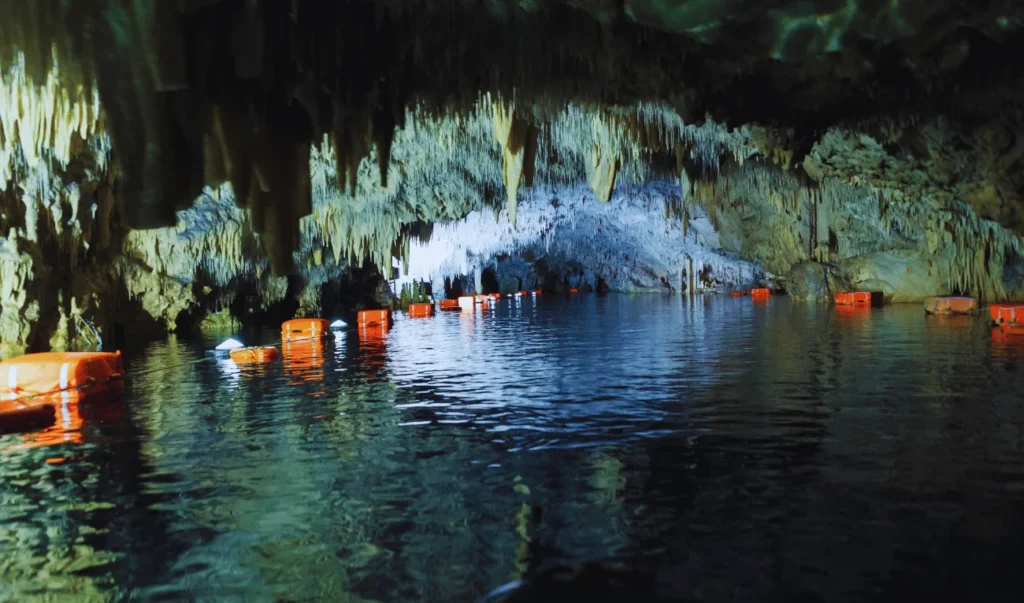
The Diros Caves, located in the Peloponnese, are among the most beautiful and extensive cave systems in Greece. A guided boat tour through the caves takes you through a labyrinth of underground waterways, with impressive stalactites and stalagmites.
Sailing the Greek Islands
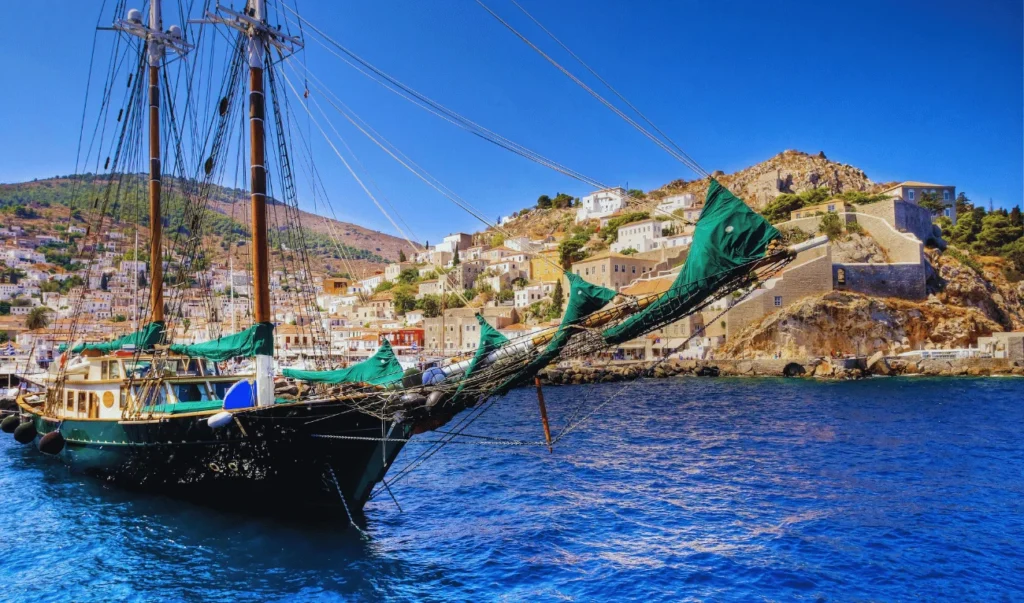
Sailing is one of the best ways to explore the Greek islands. Whether you charter a yacht or join a sailing tour, you can visit multiple islands, discover hidden beaches, and enjoy the crystal-clear waters of the Aegean and Ionian Seas.
Scuba Diving and Snorkeling in the Aegean Sea
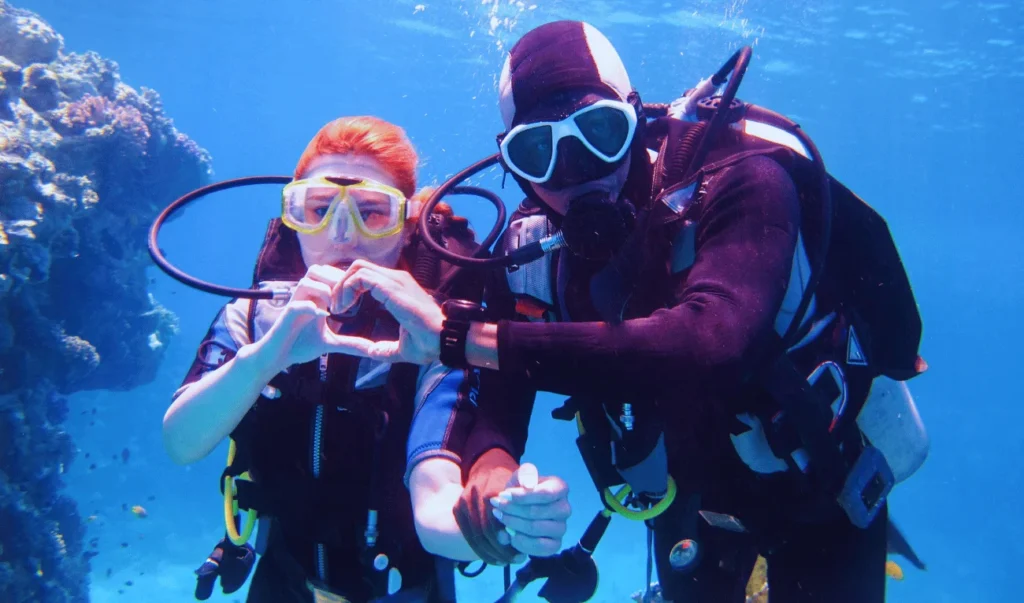
The Aegean Sea offers excellent opportunities for scuba diving and snorkeling, with its clear waters, vibrant marine life, and underwater archaeological sites. Popular diving spots include the islands of Crete, Rhodes, and Zakynthos.
Skiing in Mount Parnassus
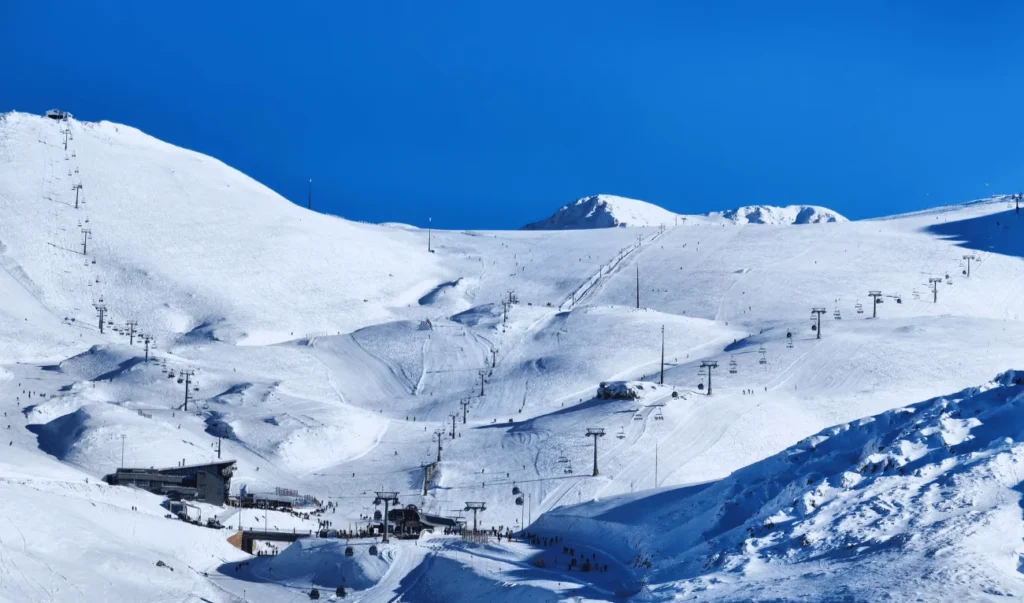
Greece might not be the first place that comes to mind for skiing, but the country offers several excellent ski resorts. Mount Parnassus, near Delphi, is one of the most popular ski destinations, with well-groomed slopes and stunning views of the surrounding mountains.
Cultural Experiences in Greece
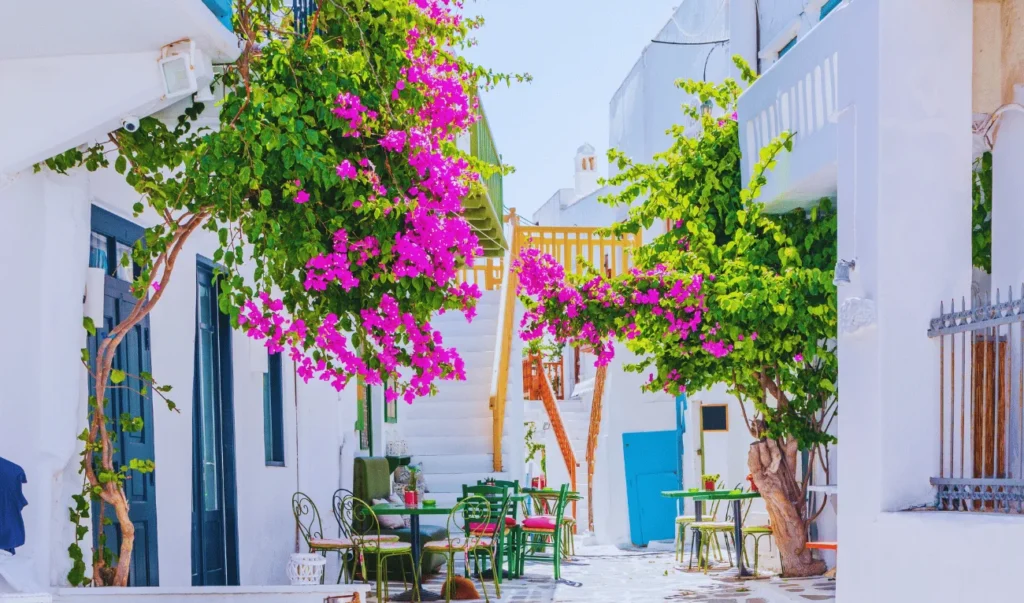
Its cuisine, festivals, and traditional crafts reflect Greece’s rich cultural heritage.
Traditional Greek Cuisine and Must-Try Dishes

Greek cuisine is renowned for its fresh ingredients, bold flavors, and healthy Mediterranean diet. Must-try dishes include moussaka, a layered casserole of eggplant, minced meat, and béchamel sauce; souvlaki, skewered and grilled meat often served with pita and tzatziki; and spanakopita, a savory pie filled with spinach and feta cheese. Don’t miss the opportunity to try fresh seafood, local cheeses, and honey-drizzled desserts like baklava.
Greek Wine and Olive Oil Tours

Greece is one of the world’s oldest wine-producing regions, and wine tours are a fantastic way to explore this ancient tradition. Visit vineyards in Santorini, Crete, and the Peloponnese to taste local varieties and learn about the winemaking process. Olive oil is another staple of Greek cuisine, and tours of olive groves and oil presses offer a delicious and educational experience.
Festivals and Events in Greece

Greece’s cultural calendar is filled with festivals and events celebrating everything from religious holidays to music and film. The Athens and Epidaurus Festival, held every summer, features performances of ancient Greek drama in historic theaters. The Patras Carnival, one of the biggest in Europe, offers a vibrant celebration with parades, music, and dancing. Local festivals, or “panigyria,” often held in honor of a saint, are great opportunities to experience traditional music, dance, and food.
Ancient Greek Theatres and Performances
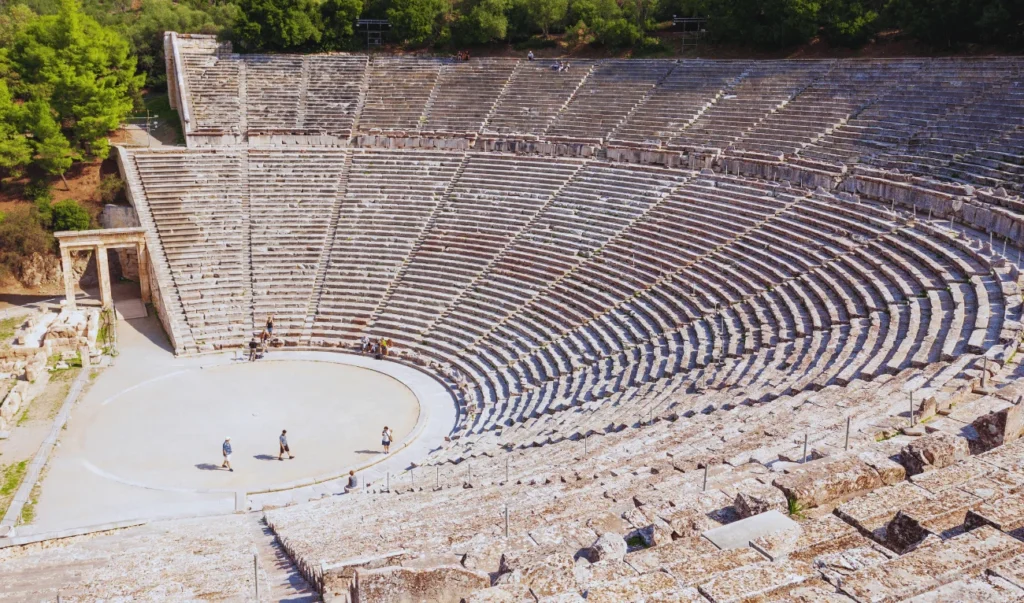
Greece is home to some of the best-preserved ancient theaters in the world, where you can still attend performances today. The Theatre of Epidaurus, known for its exceptional acoustics, hosts performances of ancient Greek drama during the summer. The Odeon of Herodes Atticus in Athens, set against the backdrop of the Acropolis, is another stunning venue for concerts and theatrical performances.
Local Markets and Souvenirs

Exploring local markets is a great way to experience Greek culture and find unique souvenirs. The Central Market in Athens is a bustling hub of activity, offering everything from fresh produce and meats to spices and sweets. Local markets are perfect for finding handmade crafts, pottery, textiles, and jewelry in smaller towns and villages.
Practical Information for Traveling in Greece
Transportation
Greece has a well-developed transportation system, making it easy to travel around the country.
By Plane
Domestic flights connect Athens with major cities and islands, making air travel a convenient option for covering longer distances.
By Ferry
Ferries are a popular way to travel between the Greek islands. Regular services connect the mainland with the islands; island-hopping is a fantastic way to explore multiple destinations.
By Car
Renting a car provides flexibility, especially for exploring the mainland and larger islands. Greece’s road network is extensive, and driving is a great way to reach more remote areas.
By Bus
Buses are a cost-effective option for traveling within cities and to remote areas. The KTEL bus network covers most of the country, with services connecting towns and villages.
By Train
Trains offer a scenic way to travel through Greece, with routes connecting major cities and regions. The Athens-Thessaloniki line is the main railway route, offering comfortable and efficient service.
Accommodation
Greece offers various accommodation options to suit all budgets and preferences.
Hotels and Resorts
From luxury hotels to budget-friendly options, Greece has accommodations to fit every traveler’s needs. Imagine staying in a grand historic hotel in Athens or a beachside resort in Mykonos.
Villas and Holiday Rentals
Holiday rentals and villas provide the comforts of home and are perfect for longer stays or family vacations. They offer more space and privacy compared to traditional hotels.
Hostels and Budget Stays
Budget travelers can find affordable and sociable accommodation in hostels. Meeting fellow travelers and sharing experiences in a friendly, communal setting is a great way to enhance your trip.
Boutique Hotels
For a unique and personalized experience, boutique hotels offer stylish accommodations with a local touch. These smaller hotels often provide exceptional service and attention to detail.
Camping and Glamping
Greece’s natural beauty makes it a perfect destination for camping. For those seeking a more luxurious experience, glamping (glamorous camping) combines the thrill of the outdoors with the comforts of a hotel.
Health and Safety
Greece is a safe and welcoming destination for travelers.
Tips for Staying Safe
Health Insurance: Ensure you have adequate health insurance coverage for your trip. Picture yourself traveling with peace of mind, knowing you’re covered in case of emergencies.
Emergency Numbers: The emergency number in Greece is 112 for all services. Imagine having this essential information handy to ensure you’re prepared for any situation.
Travel Advisories: Check for any travel advisories or health updates before your trip. Imagine staying informed and making safe, smart travel decisions.
Local Customs: Respect local customs and etiquette to ensure a pleasant experience. Picture yourself blending in with the locals, enjoying their culture and traditions. Greeks are known for their hospitality, and a friendly demeanor will go a long way in enhancing your travel experience.
Money Matters
Greece uses the Euro (€) as its currency. ATMs are widely available, and credit cards are accepted in most places.
Budgeting Tips
Dining: Eating at local tavernas can be more affordable than dining in tourist-heavy areas. Enjoy a hearty, traditional meal at a cozy taverna without breaking the bank.
Sightseeing: Look for city passes that offer discounts on attractions and public transport. Imagine exploring the best of Greece’s cities while saving money on entrance fees and transport.
Shopping: Avoid shopping in tourist-heavy areas to find better deals. Picture discovering hidden gems and unique souvenirs in local markets and boutiques.
Quick Info Table: Essential Details for Your Greece Trip
| Category | Details |
|---|---|
| Time to Explore | 10-14 days |
| High Season | June to August |
| Currency | Euro (€) |
| Language | Greek (official), English widely spoken |
| Best Activities | Sightseeing, Island Hopping, Historical Tours, Beach Activities, Nightlife, Outdoor Adventures |
| Notable Cities | Athens, Thessaloniki, Heraklion, Chania, Rhodes, Corfu, Zakynthos, Mykonos, Santorini, Delphi |
| Local Cuisine | Moussaka, Souvlaki, Spanakopita, Fresh Seafood, Baklava, Greek Salad |
| Public Transport | Efficient and extensive network of buses, ferries, and trains |
| Emergency Number | 112 |
Conclusion
Greece is a destination that offers something for every traveler. Its stunning landscapes, rich history, vibrant culture, and warm hospitality make it a must-visit country. Whether you’re exploring the ancient ruins of Athens, enjoying the beaches of the Greek islands, hiking through the mountains, or savoring the delicious cuisine, Greece promises unforgettable experiences. Prepare for an adventure filled with beauty, culture, and discovery. Enjoy your journey to Greece, where every corner has a story to tell, and every moment is a memory in the making.

